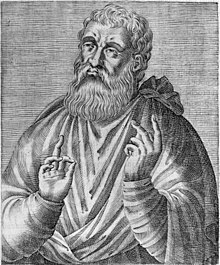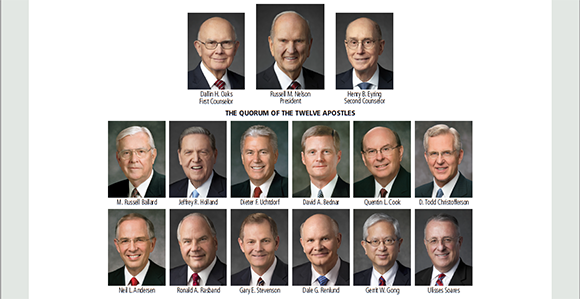Monday, May 31, 2021
Saturday, May 29, 2021
Justin Martyr on Sunday, the Christian Sabbath
I often find myself in the middle between two camps regarding the Christian and the Sabbath. On one side, I have the Seventh-Day Adventists, who believe that there is virtually no discontinuity between the Jewish Sabbath and the Christian Sabbath, including the necessity of maintaining the seventh-day as the Sabbath. In contrast, the opposite side is those who hold that there is such a radical discontinuity that there is no Sabbath for the Christian.
My personal view is that of classical Protestantism, a rejection of both opposing sides, such as is found in the Westminster Confession of Faith XXI:7: "As it is of the law of nature, that, in general, a due proportion of
time be set apart for the worship of God; so, in his Word, by a
positive, moral, and perpetual commandment, binding all men in all ages, He hath particularly appointed one day in seven for a Sabbath, to be
kept holy unto Him:
which, from the beginning of the world to the
resurrection of Christ, was the last day of the week; and, from the
resurrection of Christ, was changed into the first day of the week,
which in Scripture is called the Lord’s Day, and is to be continued to
the end of the world as the Christian Sabbath."
Justin Martyr
It is that last clause, regarding the change to the first day of the week that I wish to address. It is exactly the point of conflict between orthodox Protestants and the Seventh-Day Adventists regarding the Sabbath. Adventists place the blame at the feet of Constantine, the Roman emperor who legalized the Christian faith in the Empire.
However, we have the testimony of Justin Martyr (100-165 AD) to the contrary: "And on the day called Sunday, all who
live in cities or in the country gather together to one place, and the
memoirs of the apostles or the writings of the prophets are read, as
long as time permits; then, when the reader has ceased, the president
verbally instructs, and exhorts to the imitation of these good things" (1
Apol 67.3). Church History simply does not support Adventist claims on the subject.
Wednesday, May 26, 2021
The Incompatibility of Works-Righteousness and Faith-Righteousness
"The truth is that the faith by which alone the elect sinner is justified is a knowing and trusting that renounce works and working for righteousness... The faith that renounces working and works for justification is true faith. Whatever supposed 'faith' insists on working for righteousness is thereby exposed as a false faith. No one is justified by a false faith."
- Rev. David Engelsma, "Gospel Truth of Justification," p. 190, emphasis added
In this paragraph, Engelsma is making the same point that Paul made in his Epistle to the Romans. For example, he wrote in Romans 9:30-32, "What shall we say, then? That Gentiles who did not pursue righteousness have attained it, that is, a righteousness that is by faith; but that Israel who pursued a law that would lead to righteousness did not succeed in reaching that law. Why? Because they did not pursue it by faith, but as if it were based on works."
The theme in both is a mutual exclusivity between justification by faith and justification by works. Dependence on one precludes dependence on the other. The seeking of a righteousness, i. e., justification, by works is the reason Paul gives for the excommunication of the Jews (see Romans 11:13ff).
This shouldn't have been news to the Jews. After all, they looked to Abraham as their national progenitor. And of Abraham, the Jewish Scriptures record, "He believed the LORD, and He counted it to him as righteousness" (Genesis 15:6). That is why that verse is one of the most-frequently quoted in the New testament, e. g., Romans 4:3, Galatians 3:6, and James 2:23.
Saturday, May 22, 2021
By What Standard? New Testament Love and the Law
"[L]ove is not a replacement of the Law of God but rather its highest manifestation or fulfillment (Romans 3:10). In addition..., there is no biblical distinction between Old Testament commandments and New Testament commandments, Old Testament law and New Testament law; these distinctions are traditions and doctrines of men."
- Roger Hadad, "Apologia for the Law and the Sabbath," p. 60
Part of the decay of American Evangelicalism has been the rise of antinomianism, the claim that biblical law has no role in the life of the Christian. While it is orthodox protestantism to say that the Law has no role in our
 |
| Moses with the Commandments |
What, according to these evangelicals, has replaced the Law for the Christian? The law of Christ, they answer. What is that? The law of love.
In the New Testament, Jesus tells us the two highest laws: "You shall love the Lord your God with all your heart and with all your soul and with all your mind. This is the great and first commandment. And a second is like it: You shall love your neighbor as yourself. On these two commandments depend all the Law and the Prophets" (Matthew 22:37-40). And, as the antinomians say, there is much of love stated there. But then the antinomians stop.
I understand why they stop. Those verses are a problem for the view which I oppose here. How so, you may ask?
"And you shall love the LORD your God with all your heart and with all your soul and with all your strength." Isn't that just quoting the verse again? No, it isn't. This verse is Deuteronomy 6:5. "You shall love your neighbor as yourself." And where is this found? Matthew 22:39, you answer, and correctly. However, before Matthew wrote, it was found in Leviticus 19:18.
Do you see the problem for the antinomian? He claims that love is the law of Christ, in opposition to the law of Moses. Yet, Jesus quoted the law of Moses in order to state His law of love! Unlike the American Evangelical, Jesus was no antinomian.
Wednesday, May 19, 2021
The End of the Apostolate in the First Century Contra Mormonism
"You are fellow citizens with the saints and members of the household of God, built on the foundation of the apostles and prophets, Christ Jesus Himself being the cornerstone, in whom the whole structure, being joined together, grows into a holy temple in the Lord. In Him you also are being built together into a dwelling place for God by the Spirit."
-Ephesians 2:19-22
In the passage above, the Apostle Paul is describing the development of the visible church, which began, of course, with the Person and work of Jesus, who then appointed the Apostles and prophets, who then provided the foundation for the rest of us in that church. Some aberrant groups, especially the Mormons, claim that Paul is teaching a continuous succession of apostles and prophets to govern the church. Yet, those same Mormons don't teach that the verse- in fact, the same sentence- teaches that they should have a succession of Jesuses
There are other problems with the Mormon use of the passage. In addition to the contradiction in their interpretation, there is the simple fact that a building does not have a continuing succession of foundations. Rather, one foundation is laid, and then the other parts of the building are built upon that foundation.
Another problem for the Mormon claim is found in other parts of Paul's writings.
In Titus 1:5, the Apostle tells his student, "This is why I left you in Crete, so that you might put what remained into order, and appoint elders in every town as I directed you..." Appoint elders, not prophets, and not apostles. In I Timothy, chapter 3, and again in Titus 1, he gave instructions on the qualifications of those elders. Nowhere does Paul, or any other New Testament writer, give information about how to choose apostles or prophets! Yet, Mormons want us to believe that they have exactly those things of which the Bible never speaks! The implication is obvious, that those offices were temporary, foundational, and never intended for continuation. Rather, they have been replaced with elders and deacons who rule and teach, not by new revelation, but rather according to the completed word of God in the Old and New Testaments.
Saturday, May 15, 2021
God's Proper Love for Himself
"Regarding the guilty sinner, it is the perfection of God's being that requires and effects the maintenance of God's holy being - His Godhead! - by the infliction on the sinner of the punishment due the assault on, and denial of, the holy being of God. Ultimately, this deserved punishment is eternal, awful hell. As the heart, center, and foundation of the gospel of salvation, it is the substitutionary suffering of the punishment for sin by God Himself in the human flesh of Jesus, thus executing and satisfying His righteousness, which then is (legally) imputed to the elect but guilty sinner by means of the sinner's faith in Jesus Christ."
- Rev. David Engelsma, "Gospel Truth of Justification," pp. 151-2
It is popular among American evangelicals to make claims about God or the Christian faith with statements that begin with, "Since/If God loves everybody, then He..." must forgive everything, or cannot send people to hell, or can't elect some people but not others.
What one never hears is statements that begin with, "Since God loves Himself above all else..."
And that is why there is so much bad theology among those professing evangelicals, such as universal salvation, annihilationism, the absence of discernment, etc.
In the quote above, Engelsma effectively makes that rare statement, and then gives one of its implications. "Since God loves Himself, He loves His own holiness, which requires that He judge sin." We see this in Scripture in, for example, Habakkuk 1:13: "You who are of purer eyes than to see evil and cannot look at wrong, why do You idly look at traitors and remain silent when the wicked swallows up the man more righteous than he?" The prophet takes the opposite tack from the modern evangelical. His plea to God is that He would recall His love for Himself and thus judge those who act contrarily to that nature.
So that is the challenge I make to those who spout syrupy nonsense about the love of God. While they want the world to believe that God loves every rebel who spits in His face, I ask, "What about God's love for Himself?"
Wednesday, May 12, 2021
The Father Certifies the Son's Atoning Work
"Between the throne and the four living creatures and among the elders I saw a Lamb standing, as though it had been slain, with seven horns and with seven eyes, which are the seven spirits of God sent out into all the earth. And He went and took the scroll from the right hand of Him who was seated on the throne. And when He had taken the scroll, the four living creatures and the twenty-four elders fell down before the Lamb, each holding a harp, and golden bowls full of incense, which are the prayers of the saints. And they sang a new song, saying, 'Worthy are You to take the scroll and to open its seals, for You were slain, and by Your blood You ransomed people for God from every tribe and language and people and nation, and You have made them a kingdom and priests to our God, and they shall reign on earth'" (Revelation 5:6-10).
The passage above is one of the most beautiful in the New Testament. It parallels a similar scene in Daniel 7:9-14. I think that both passages describe the same event, Daniel prophetically in advance and John by vision after the event: the entry of Jesus into the heavenly throne room after His ascension. He receives His commission from the hand of the Father, a diploma, if you will. The Father acknowledges the Son's successful completion of the work of redemption, and rewards Him with the glory of a church, consisting of men from every culture, just as the Father had promised Him in Psalm 2:6-8: "As for Me, I have set My King on Zion, My holy hill. I will tell of the decree: The Lord said to Me, 'You are My Son; today I have begotten You. Ask of Me, and I will make the nations Your heritage, and the ends of the earth Your possession.'" Compare this promise to the declaration of Jesus in the Great Commission: "All authority in heaven and on earth has been given to me. Go therefore and make disciples of all nations, baptizing them in the name of the Father and of the Son and of the Holy Spirit, teaching them to observe all that I have commanded you" (Matthew 28:18-20).
While there are many things that we can take out of this series of verses, my intent now is to turn from Who achieved it, to for whom He achieved it.
Look again at Revelation 5, especially verse 9: "by Your blood You ransomed people for God from every tribe and language and people and nation." The common view of the redemptive work of Jesus is that He performed it for every person in the world throughout history. That is the view of Arminianism. That is, the Arminian reads John's words as, "by Your blood You ransomed all people for God." However, that isn't what the verse says. It says, "people from every tribe, etc." The difference is the assumption of a universal atonement in the Arminian version, but a particularization to certain men in John's actual words.
This passage teaches the doctrine of particular atonement, also sometimes called definite or limited atonement, usually associated with the Calvinist system of doctrine. It does not permit the universal atonement advocated by the Arminian system.
Saturday, May 8, 2021
Watchtower Deception in John 1:1
In its New World Translation [sic] of the Bible, the Watchtower Society, commonly called Jehovah's Witnesses, says, "In the beginning was the Word, and the Word was with God, and the Word was a god." The Society claims that the absence of the definite article indicates the equivalent of the indefinite article in English, there being no such article in Greek. That statement by the Society about John 1:1 is highly deceptive.
First, it is incomplete. That is something that can be indicated by the absence of the article. However, in the copulative, as in the sentence here, Greek uses the definite article to distinguish the subject versus the predicate nominative. That is because Greek didn't use word order the way English does. In the Greek, the word order is actually "and God was the Word." The word order is a means of showing emphasis. Therefore, to translate "god" in the definite sense in English is correct.
Furthermore, notice that the NWT says "the beginning." Yet there is also no article in front of "beginning" in the Greek. The NWT inserts one there, while claiming that there is something suspect in doing the same thing for "god."
My purpose here is mainly my hope that some Jehovah's Witnesses will see this, and recognize that their loyalty to the Watchtower is undeserved. Turn to the true Christian Jesus, God the Son, for eternal life.
I also hope that some less-prepared Christians will read this before they are next approached by a Witness, so that the Watchtower cannot use its deception to capture yet another soul.
Wednesday, May 5, 2021
Noah and the Sabbath Principle
:max_bytes(150000):strip_icc()/StoryofNoah-525514702-e443c224802a4e278e257a39ee3050a1.jpg) |
| Noah and the Ark |
But the question they avoid is whether the concept appears before Exodus 20. As I say here, it first appears in Genesis 2:2-3, when God blesses the seventh day in honor of His completion of the Creation. But, as I will argue in this post, that verse is not the only place that we find the Sabbath in the pre-Mosaic scriptures.
One of the antinomian views is that non-Jews are obligated to obey only the Noahide laws, i. e., those rules given to Noah, the progenitor of the postdiluvian humanity. While I deny that assertion, in this case it is actually self-refuting.
In Genesis 5:28-29, we have this part of the account of Noah: "When Lamech had lived 182 years, he fathered a son and called his name Noah, saying, 'Out of the ground that the Lord has cursed, this one shall bring us relief from our work and from the painful toil of our hands.'" Lameck, the father of Noah, prophesies that his son would bring relief from work and toil to his descendants. Notice the exact language of Genesis 3:18-19, God's curse on Adam: "Thorns and thistles it [i. e., the ground] shall bring forth for you; and you shall eat the plants of the field. By the sweat of your face you shall eat bread, till you return to the ground, for out of it you were taken; for you are dust, and to dust you shall return."





